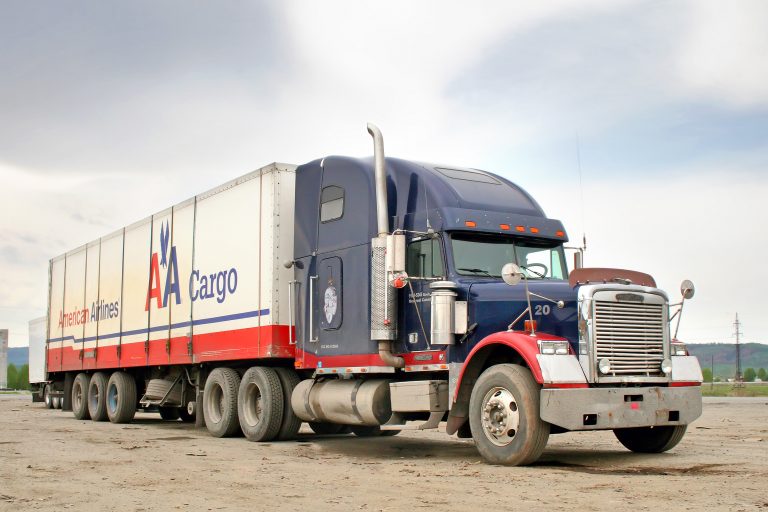The electronic logging device (ELD) mandate has reshaped the trucking industry since its implementation. This regulation requires commercial motor vehicle operators to use ELDs to record their hours of service (HOS), replacing paper logs. The mandate aims to enhance road safety, improve compliance, and streamline record-keeping.
In 2024, the electronic logbook market offers a wide array of solutions. Fleet managers and owner-operators must navigate these options to find the best fit for their operations. This article will guide you through the current ELD landscape, helping you understand key factors in choosing or switching providers.
We’ll explore market leaders, examine essential features, and provide insights on maximizing your investment. Whether you’re new to elogs or considering a change, this overview will equip you with the knowledge to make informed decisions in today’s competitive trucking environment.
Do you have any questions? Talk to ELD Advisor: 650-405-3372 or Request Callback
The ELD Market in the USA
The US electronic logbook market has matured significantly since the mandate took effect in December 2017. It has developed into a competitive industry with a diverse array of providers. According to a report by MarketsandMarkets, the global ELD market size is projected to reach $16.6 billion by 2025.

Market Composition
- Established telematics providers
- Specialized ELD companies
- New entrants leveraging innovative technologies
Market Share
While exact figures fluctuate, industry leaders collectively hold approximately 45-50% of the market share. However, the landscape remains fragmented, with numerous smaller providers catering to niche segments or specific industry needs.
Growth Drivers
- Ongoing adoption among smaller fleets and owner-operators
- Demand for advanced features beyond basic compliance
- Integration with broader fleet management systems
- Expansion into adjacent industries like construction and field services
Market Trends
- Consolidation. Larger companies are acquiring innovative startups to expand their technological capabilities.
- Cloud-based solutions. Increasing shift towards cloud-based elogs for improved accessibility and data management.
- AI and machine learning. Enhanced predictive capabilities for maintenance, fuel efficiency, and driver behavior analysis.
- 5G integration. Faster, more reliable data transmission for real-time fleet management.
Challenges
- Cybersecurity concerns. As ELDs collect sensitive data, ensuring robust security measures is crucial.
- Compliance with evolving regulations. Providers must stay updated with changing FMCSA requirements.
- Data overload. Fleets need solutions to effectively analyze and act on the vast amount of data generated.
The ELD market continues to evolve, driven by technological advancements and changing industry needs. Fleet operators must stay informed about these trends to select and leverage the most effective solutions for their specific operational requirements.
Evaluating ELD Companies: Key Factors to Consider
When choosing an electronic logbook provider, several crucial factors come into play. These elements can significantly impact your fleet’s efficiency and compliance.
- Compliance with FMCSA regulations. Ensure the device is FMCSA-approved. It must meet all current compliance standards. Regular updates to align with changing regulations are essential.
- Mobile app functionality. Many drivers prefer using their own devices. Consider app ratings and reviews on major app stores, compatibility with both iOS and Android devices, and offline functionality for areas with poor connectivity.
- Hardware options and installation. Different fleets have different needs. Evaluate the hardware’s compatibility with different vehicle types and ease of installation.
- Integration capabilities. The best ELD companies offer integration with other fleet management tools. This includes fuel management systems, maintenance schedules, and routing software.
- Customer support and training. Reliable customer support is crucial. Look for providers offering accessible assistance. Comprehensive training programs help drivers and staff adapt quickly to the new system.
- Pricing models and total cost. Consider both upfront and long-term costs. Some providers offer flexible pricing models. Evaluate hardware costs, monthly fees, and any potential hidden charges. A lower initial price may not always mean lower total costs over time.
By carefully considering these factors, you can select an ELD solution that best fits your fleet’s needs. The right choice will ensure compliance, improve efficiency, and provide long-term value for your operation.
Top ELD Companies in USA
The ELD market offers several providers, each with unique features. This section overviews leading providers based on app store ratings. We have compiled a list to help you compare the best ELD companies in USA:
| RANK | ELD PROVIDER | iOS APPSTORE | ANDROID PLAYSTORE |
|---|---|---|---|
| 1 | |||
| 2 | KeepTruckin | ||
| 3 | JJ Keller | ||
| 4 | BigRoad | ||
| 5 | Garmin | ||
| 6 | |||
| 7 | Geotab | ||
| 8 | |||
| 9 | Transflo | ||
| 10 | Verizon | ||
| 11 | Stoneridge |
When evaluating these options, consider your fleet’s specific needs when evaluating these options. The right electronic logbook may depend on fleet size, compliance requirements, and integration needs.
HOS247: A Standout Among ELD Providers
HOS247 offers a comprehensive ELD solution designed for fleets of all sizes. Our system combines reliability with user-friendly features to meet diverse trucking needs. HOS247 benefits include:
- User-friendly interface. Intuitive design for drivers and managers. Simple log management and status updates. Easy-to-read dashboards for quick data interpretation.
- Reliable hardware. Durable devices for harsh trucking environments. Stable Bluetooth connectivity. Backup cellular data option for uninterrupted service.
- Multilingual support. Assistance in English, Spanish, Russian, and Polish. Support available every day of the week. Convenient call-back policy.
- Regular updates. Ensures ongoing compliance with FMCSA regulations. Automatic updates minimize downtime.
- Comprehensive fleet management. Our system offers real-time GPS tracking, IFTA mileage calculations, vehicle diagnostics, and idling monitoring to enhance trucking operations.
- Wide compatibility. Integrates with other business tools. Works on Android and iOS. Compatible with various vehicles and fleet management software.
- Flexible plans. No long-term contracts required. Scalable options for growing fleets. Add or remove features as needed.
- Cost-effective solution. Transparent pricing without hidden fees. Two-week trial period.
These benefits collectively make HOS247 a reliable choice for fleets seeking an ELD company that goes beyond basic compliance to enhance overall operations.

Switching ELD Providers: What You Need to Know
There may come a time when your current electronic logbook no longer meets your needs. Recognizing when to make a change and how to navigate the transition is crucial for maintaining operational efficiency and compliance.
Signs it’s time to switch:
- Poor customer support
- Frequent compliance issues
- Lack of necessary features
- Outdated technology
- High costs without matching value
If you’ve noticed any of these red flags, it might be time to explore new ELD software companies. However, switching providers isn’t without its challenges. You may face data migration complexities, need to retrain your staff, and experience temporary productivity dips. The key is to approach the transition strategically.
Best practices for a smooth transition include:
- Plan ahead. Give yourself time to research and implement the new system.
- Choose a provider with migration support. This can significantly ease the transition process.
- Train staff before implementation. Familiarize your team with the new system in advance.
When it comes to transferring historical data, start by identifying critical information that needs to be moved. Export this data from your old system and verify its integrity after importing it into the new one. It’s also wise to keep old records accessible, just in case.

Maintaining compliance during the switch is paramount. Coordinate the timing with your safety department and inform drivers about the upcoming changes. Consider keeping paper logs as a backup during the changeover, and if possible, schedule the switch during a slower operational period.
As you evaluate your new provider, test all features during the trial period. Ensure the new system meets all your operational needs and verify its FMCSA registration. Remember to focus on long-term benefits – consider overall value, scalability, and future-proof features rather than just immediate costs.
By approaching the switch thoughtfully and methodically, you can ensure a smoother transition to a new ELD provider that better serves your fleet’s needs.
Maximizing ROI with Your ELD
Implementing an ELD system is more than just a compliance requirement—it’s an opportunity to enhance your fleet’s efficiency and profitability. Here’s how to leverage your ELD data for maximum return on investment:
Leveraging ELD data for business insights:
- Analyze driving patterns to optimize routes
- Identify trends in fuel consumption
- Track vehicle utilization rates
- Monitor driver performance metrics
By diving deep into this data, you can make informed decisions that positively impact your bottom line.
Improving fleet efficiency and reducing operational costs:
- Use real-time tracking to improve dispatch efficiency
- Minimize idle time to reduce fuel waste
- Schedule preventive maintenance based on engine hours
- Reduce paperwork and administrative time
These improvements can lead to significant cost savings over time.

Using ELD features to enhance driver satisfaction and retention:
- Implement fair and transparent performance evaluations
- Recognize and reward efficient driving behaviors
- Use data to address driver concerns proactively
- Streamline processes to reduce driver stress
Happy drivers are more likely to stay with your company, reducing turnover costs.
Remember, the key to maximizing ROI is consistent use and analysis of your ELD data. Regular reviews of the information provided by your electronic logbook can help you:
- Identify areas for improvement
- Set realistic goals for your fleet
- Track progress over time
- Make data-driven decisions
By fully utilizing your ELD’s capabilities, you’re not just complying with regulations—you’re investing in your fleet’s future success. The insights gained from your elog data can drive continuous improvement, leading to a more efficient, profitable, and competitive operation.
Conclusion
The ELD market in 2024 offers a diverse range of solutions for fleets of all sizes. As we’ve explored throughout this article, choosing the right ELD company is crucial for ensuring compliance, improving operational efficiency, and maximizing return on investment.
As the trucking industry continues to evolve, so too will elog technology. By choosing a provider committed to innovation and customer support, you position your fleet for long-term success.

We encourage you to take the time to thoroughly evaluate your options. Consider your fleet’s specific needs, growth plans, and operational challenges. Remember, the best ELD companies go beyond mere compliance—it becomes a valuable partner in your fleet’s efficiency and profitability.
Embrace the full potential of electronic logging technology. With the right provider, you can transform a regulatory requirement into a competitive advantage, driving your fleet towards a more efficient, safe, and profitable future.

I’ve co-founded, built and managed several transportation-related businesses. Now, I’m a founder and CEO of HOS247 – an AI Transportation Platform for trucking companies, freight brokers and other logistics operations. We are transitioning old-style operations to technology-advanced logistics entities and help them to grow their businesses. ELDs (electronic logging devices), fleet tracking and management 2.0 combined with AI-powered dispatch tools.












The federal mandate for electronic logging devices for trucks is now in full force. This new requirement became law in February 2016 with a mandatory implementation date of December 2017. An exemption was originally made for AORBD (Automatic On-Board Recording

User-friendly ELDs and accompanying apps are more important now than ever, as driver turnover continues to be a problem for trucking businesses. Difficult to navigate apps make drivers’ jobs more complicated. That is one more inconvenience that could make them

Ever since the ELD mandate was introduced by FMCSA, trucking companies and drivers are in a dilemma on how to choose the right provider. The e-log system has been mandated by the DOT to increase road safety and vehicle security.